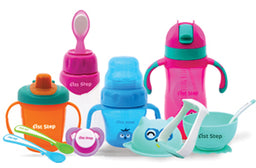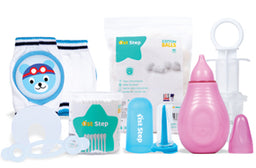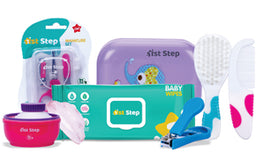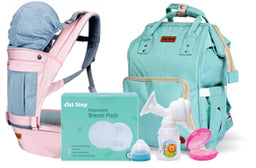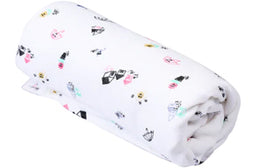10 Foods for Breastfeeding Moms to Boost Milk Production
Breastfeeding is one of the most rewarding yet demanding things a new mom can do. Keeping your milk supply up can sometimes feel challenging as a baby's needs change daily.
Many foods are said to boost milk production, but which ones really work?
This blog post outlines the top 10 foods that can increase a mother's milk supply. From dry fruits and dark leafy greens to ghee and garlic, these nutritional powerhouses are easy to add to a breastfeeding mom's diet and will help ensure she has plenty of breastmilk to feed her hungry little one.
Keep reading to know more! Meanwhile if you have excess milk production, Use breast pump and also use breast shields for caring your breast and breast pads is the must for breasfeeding moms. Get these from the best baby products store - 1st Step.
Importance of a Balanced Diet During Breastfeeding
The importance of a balanced diet during breastfeeding cannot be overstated. It's not just about eating for two; it's about providing the right nutrients for both you and your baby.
A well-rounded diet ensures that your body has the energy and resources to supply ample milk. Key nutrients like protein, calcium, iron, and vitamins are crucial for your baby's growth and development. Protein supports tissue repair, calcium strengthens bones, and iron prevents anaemia.
Moreover, a diverse diet can expose your baby to various flavours through your breast milk, potentially making them more accepting of different foods later in life.
Remember, there's no one-size-fits-all diet for breastfeeding moms. By nourishing your body with a balanced diet, you're boosting milk production and laying the foundation for your baby's healthy development.
How Often Should a Breastfeeding Mom Eat in a Day?
For breastfeeding moms, nourishing yourself is an act of love and self-care, not just for you but for your precious little one too. So, how often should you eat in a day?
The answer: listen to your body. Breastfeeding is an energy-intensive process, and your body will often signal when it's time for a meal or snack. Aim for small, balanced meals or snacks throughout the day to keep your energy levels steady.
Remember, you're not just eating for yourself; you're fueling the milk factory! So, there are really no rules as to how often you should eat. If you're hungry, you need to eat! Simple.
Ensure your diet includes a variety of nutrient-rich foods like whole grains, fruits, and vegetables. Stay hydrated by drinking plenty of water, and keep those healthy snacks at arm's reach for those moments of hunger.
Above all, don't stress about the numbers on a scale. Instead, focus on your body's cues and nourish it with love and care. Doing so will provide the best for your baby while keeping yourself energised and happy!
The 10 Best Foods to Boost Milk Production in Breastfeeding Moms
Here are the ten best foods to include in your diet for an increased supply of breast milk:
1. Leafy Green Vegetables
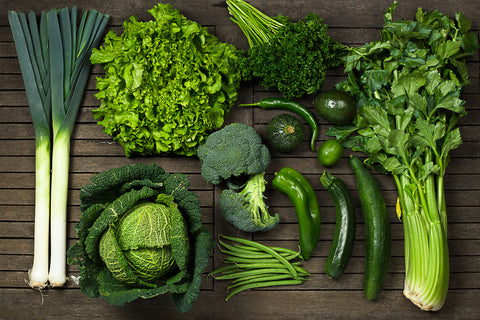
Leafy greens like spinach, kale, and collard greens are rich in essential nutrients, including iron and calcium. These nutrients are vital for both mom and baby, helping to maintain energy levels and support bone health.
2. Healthy Fats
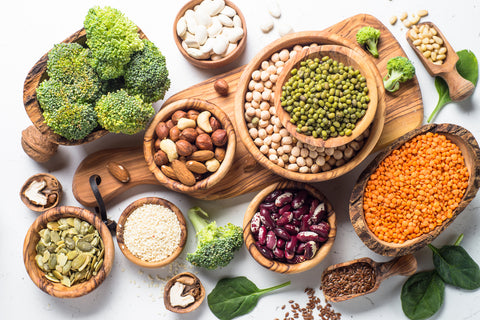
Healthy fats from sources like avocados, olive oil, ghee and nuts provide essential fatty acids necessary for brain development in infants. They also help absorb fat-soluble vitamins like A, D, E, and K.
3. Nuts And Seeds
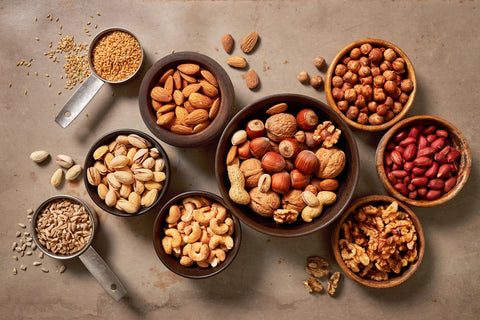
Almonds, flaxseeds, and chia seeds are nutrient-dense powerhouses for breastfeeding moms. They provide a combination of protein, healthy fats, and fibre to help keep you feeling full and satisfied.
4. Garlic
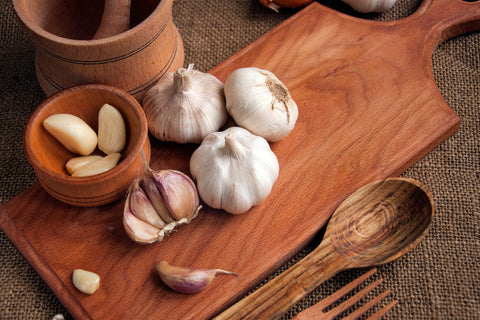
Garlic is known for its unique flavour and potential to boost milk production. It's been used in various cultures for centuries to enhance lactation. Moreover, the distinctive taste of garlic can make your breast milk more appealing to your baby, potentially encouraging longer feeding sessions.
5. Legumes And Beans
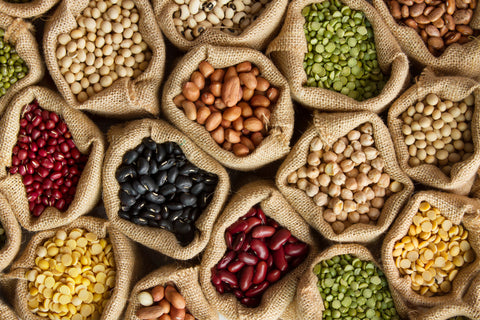
Lentils and beans are excellent plant-based protein, iron, and fibre sources. Iron is essential for both you and your baby, as it helps prevent anemia.
Additionally, the fibre in legumes aids in digestion and can help stabilise blood sugar levels, which is beneficial during the postpartum period.
6. Whole Grains
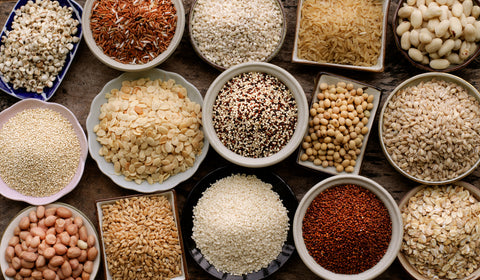
Whole grains like oats, quinoa, and brown rice are an energy-packed addition to your diet. They provide complex carbohydrates and fibre, offering sustained energy throughout the day.
7. Fenugreek
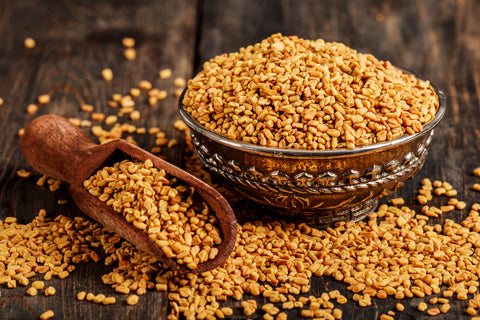
Fenugreek seeds have gained popularity for their galactagogue properties, which are believed to increase milk supply. These small seeds are rich in phytonutrients and have been used traditionally in herbal medicine to enhance lactation.
8. Fennel
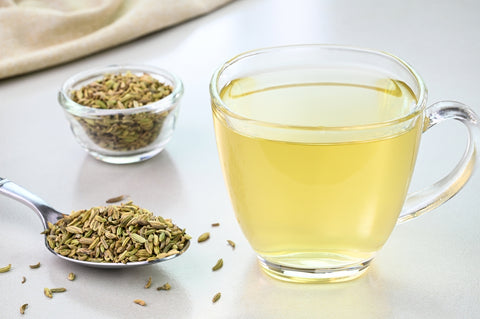
Fennel, with its distinct liquorice-like flavour, is another herb thought to promote lactation. It can be consumed as a soothing tea or added to dishes for flavour and potential milk-boosting benefits.
Beyond its potential lactation benefits, fennel offers various vitamins and minerals to support your overall breastfeeding health.
9. Papaya
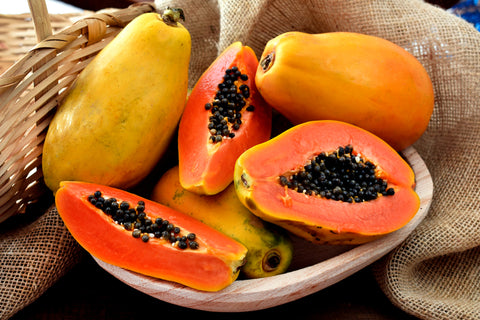
Papaya is often recommended for its potential to increase milk supply. They are rich in vitamins A and C and various minerals. It's a delicious and nutritious addition to your diet, providing vitamins, minerals, and natural sweetness.
10. Sweet Potatoes
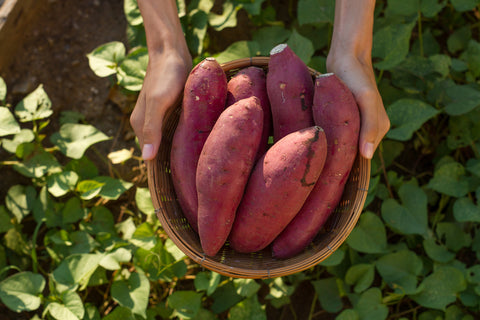
Sweet potatoes are a fantastic source of beta-carotene, which is crucial for vitamin A production. Vitamin A is essential for both the breastfeeding mother and her baby, supporting immune function and eye health. Additionally, sweet potatoes provide complex carbohydrates for sustained energy, making them an excellent addition to a breastfeeding mom's diet.
Incorporating these foods into your diet can help maintain a healthy milk supply while providing essential nutrients for both you and your breastfeeding baby.
Remember to consult with a healthcare provider or lactation consultant for personalised advice on your breastfeeding journey.
What Foods to Avoid When Breastfeeding?
Know to detailed one - Here is the blog talks on foods to avoid during breastfeeding.
Now that you know what foods to consume during breastfeeding, let's look at the foods you must avoid.
● Avoid alcohol while breastfeeding to prevent affecting your baby's sleep and development.
● Be cautious with allergenic foods like peanuts and dairy if there's a family history of allergies.
● Reduce processed fast food intake for healthier breastfeeding.
Get A-Z Baby Products At 1st Step!
As mentioned earlier, selecting the right foods during breastfeeding is crucial for milk production. In addition to this, it's important to pay attention to the utensils, products, and other baby products you use to keep your baby healthy and happy!
At 1st Step, we offer you a wide range of safe and mom-friendly feeding and nursing products like feeder bottles, spoons, food nibblers, sipper cups, and more! Our products are specially designed to give both babies and parents the best care and comfort.
Conclusion
In conclusion, what you eat can significantly impact your breast milk production. Incorporating foods like oats, fenugreek, spinach, and hydrating adequately can help nursing mothers ensure a steady milk supply. While some fruits like papaya and vegetables such as spinach and carrots are thought to boost lactation, maintaining a balanced diet is essential.
Remember, each mother's body responds differently, so it's wise to consult with a healthcare provider for personalised advice.
Start incorporating a few of these foods into your diet for a healthy mom and baby!
Frequently Asked Questions (FAQs)
1. What foods help produce breast milk fast?
Foods like oats, fenugreek, and spinach can help increase breast milk production relatively quickly.
2. What role does hydration play in breastfeeding?
Yes, staying well-hydrated is very important for breastfeeding moms. You must drink plenty of water throughout the day to maintain your overall health.
3. Which fruit increases breast milk?
Papaya is often recommended to breastfeeding mothers as it contains enzymes to stimulate milk production. Also, papaya is a rich source of vitamins, especially vitamin C, and several nutrients that are beneficial to breastfeeding moms.
4. Which vegetables increase breast milk?
Vegetables such as spinach, carrots, and garlic are known to promote increased breast milk production.
5. What foods to avoid when breastfeeding?
Breastfeeding moms are usually advised to avoid junk food (fast food), spicy food, and cheesy foods. It is also recommended to avoid all forms of “gassy” foods.
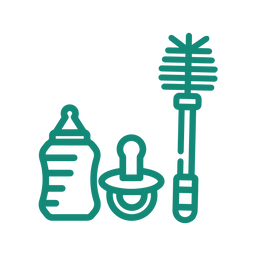 Feeding & Nursing
Feeding & Nursing Safety & Grooming
Safety & Grooming  Bathing & Diapering
Bathing & Diapering Baby Gear
Baby Gear Mother Needs
Mother Needs Muslin Essentials
Muslin Essentials Baby Toys
Baby Toys

